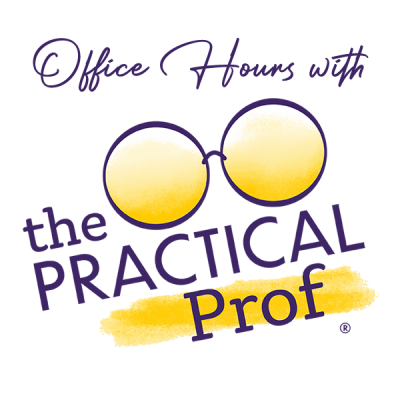
Say “No” At Work
Santo D. Marabella | Posted on |
This column was first published in the Reading Eagle on July 25, 2023.
Just Say No! You might recall that mantra for the anti-drug campaign of the 80s… that is if you were born and old like me! Well, I’d like to reframe it for a new campaign — Say No to Employers who Disrespect your Work-Life Balance. Before you discount this as unrealistic and career-damaging dead end, indulge me. I will explain why and how to do it. And, notice I am not including the “just,” and if you read on, I’ll explain that, too.
Why should I say no?
There are some helpful articles about why it’s important to say “no.” An article from Synergy Health Systems articulates it this way: “The power of saying no really comes down to the effects it has on our brain. When we say no more often, we shift the way our brain thinks and reacts to situations, allowing us more ability to make decisions for ourselves. This has a tremendous effect on our mental health, as it allows us to value ourselves more. It also helps us prioritize ourselves, and can even lead us to new opportunities that wouldn’t have been achievable by saying yes.” It’s about training our brain to create a new, healthier habit.
The article analyzes why we say “yes” which is a good place to start to understand why saying “no” is so important. They claim these reasons for our habit of yeses — to avoid confrontation or feeling left out, to please others and because we feel “compelled” to be the good company man/woman.
A final consideration for the case of saying “no” — it creates powerful yeses. When you do agree to take on or participate in a project, your boss and your colleagues will know you are all in with your commitment and effort.
The bottom line for why it’s important: Saying “no” is empowering! When you say “no” you are standing up for yourself; you are protecting your physical and mental health; and your “yeses” become more meaningful and valued.
How to say no … and not get fired!
We’d be remiss to not begin by acknowledging that it can be awkward and difficult to say “no” especially to your boss. A Wanderlust post by Lace Mosler describes it as “uncomfortable” to say “no.” It is. But, Mosler includes in her post a quote by Dr. Brené Brown (check out her TED Talks, she is a rock star for empowering people) who suggests that we “choose discomfort over resentment,” and I couldn’t agree more. If we don’t say “no,” it’s likely that resentment will build, and that is never a good place to be. Resentment shrouds rational, reasonable requests and makes everything seem like we’re being taken advantage of. So, we’re going to have to be adults here and deal with discomfort!
A March 9, 2023 Harvard Business Review article has some suggestions about how to say “no” to your boss. They offer three tips. First, take a day to think about whether the task will help or hurt you. Second, don’t just say “no,” explain why you’re saying it. And, third, they advise you to support your opinion using data.
What they mean by “help” or “hurt” is this. It could help you if it provides learning, new skills, new opportunities and advances your career goals. It could hurt you if it will add to an already strong feeling of being overwhelmed or taken advantage of; if you think you are incapable of doing a good job; if it distracts you from other required work or established priorities. If it won’t help you and will hurt you, then, it’s probably okay to say “no.”
• Offer a rationale.
This is the reason I don’t use the “Just” in “Say No.” It’s not enough to simply say “no,” especially to your boss. To be taken seriously and have credibility, you need to offer an explanation (not an excuse). An explanation demonstrates a well-developed reasoning for saying “no.” It might include not being able to do the task in the timeline required, not having the resources to do the task and not being able to complete existing priorities if you accept this task.
•Provide data.
Essentially, this means that you need to support the rationale you shared above with real data. To do that, you have to fully understand the task you’re being asked to do and what it would take to accomplish it well. When you have that information, you can compare it with your bandwidth — the amount of resources at your discretion that you have and would need to do the task effectively.
Saying “no” is good for you and good for business! When we do, we are healthier, empowered workers and we can give our employers more productivity and better outcomes!
Next Column: Vacay: Can You Really Disconnect?
Dr. Santo D. Marabella, The Practical Prof, is a professor emeritus of management at Moravian University and hosts the podcast “Office Hours with The Practical Prof … and Friends.” His latest book, “The Lessons of Caring” is written to inspire and support caregivers (available in paperback and eBook). Website: ThePracticalProf.com; Twitter: @PracticalProf; Facebook: ThePracticalProf.
SOURCES & FURTHER READING:
